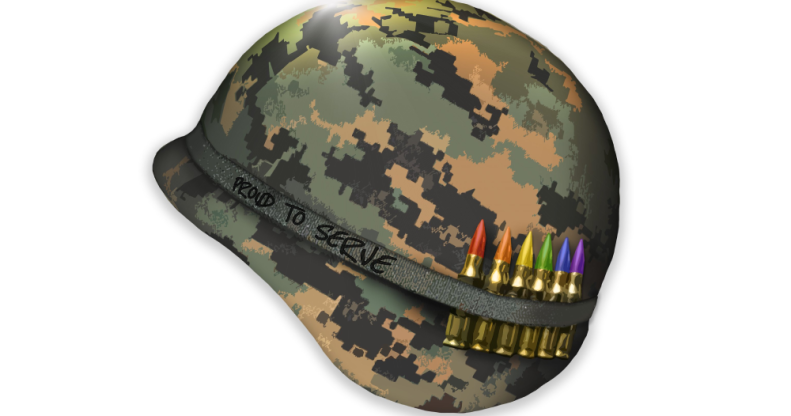US Marines celebrate Pride with rainbow bullets. Yes, really

The US Marines actually tweeted this. (Twitter/US Marines)
The US Marine Corps is facing considerable backlash from all sides after an LGBTQ+ Pride tweet that featured rainbow-tipped bullets.
The Marine Corps marked the first day of Pride Month on Wednesday (June 1) by proclaiming its support for LGBTQ+ marines.
“Throughout June, the USMC takes pride in recognising and honouring the contributions of our LGBTQ+ service members,” it tweeted.
“We remain committed to fostering an environment free from discrimination, and defend the values of treating all equally, with dignity and respect.”
The message was accompanied by a picture of a military helmet with six rainbow-tipped bullets and a strap that reads “proud to serve.”
Throughout June, the USMC takes #Pride in recognizing and honoring the contributions of our LGBTQ service members. We remain committed to fostering an environment free from discrimination, and defend the values of treating all equally, with dignity and respect.#PrideMonth #USMC pic.twitter.com/MOyvFmyJiB
— U.S. Marines (@USMC) June 1, 2022
The move was immediately criticised from all sides. LGBTQ+ people were bewildered at best and outraged at worst, while right-wing pundits lambasted the so-called “virtue signalling.”
“LGBTQ+ people do NOT want to be used as expendable tools in institutions that want them extinct,” said one user, saying it had the “same energy” as a recent police recruitment ad that made use of the Pride flag.
https://twitter.com/LeftCathProg/status/1532195392196169734
Others made the fairly obvious comparison to the poster for Stanley Kubrick’s anti-war thriller Full Metal Jacket
“Reminds me of this, you know, the anti-war film that’s meant to show how dehumanising war is and condemns even the most [purehearted] and innocent to leaving it as a psychotic murderer?” one user said.
Many called the tweet distasteful in light of the recent rash of mass shootings across the US.
“What decision-maker thought a theme of ‘let’s represent LGBTQ+ people with BULLETS’ would be a good idea?” one asked.
LGBTQ+ people were barred from serving openly in the US military until 2011.
A ‘Don’t Ask, Don’t Tell’ policy was instituted by the Clinton administration in 1993 and prohibited LGBT+ service members from speaking about or disclosing same-sex relationships during their service while barring openly queer persons from applying to join the armed forces.
More than 100,000 US service members were discharged because of their sexual orientation or gender identity,” he added. This included “some 14,000” under DADT itself (other rules were in place before DADT was signed).

